Tuesday Feb 17, 2026
Tuesday Feb 17, 2026
Tuesday, 4 September 2018 00:00 - - {{hitsCtrl.values.hits}}
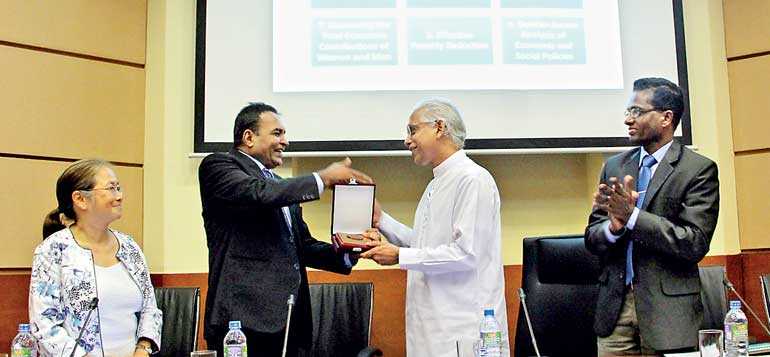
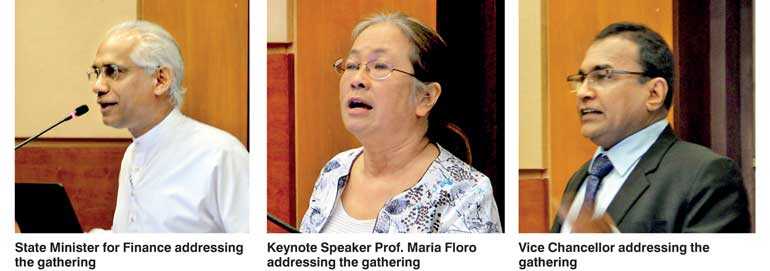
The University of Peradeniya’s Postgraduate Institute of Humanities and Social Sciences (PGIHS) is launching a historic postgraduate program in gender analysis of economics. Directed by the academics from the Department of Economics and Statistics, the university will offer postgraduate courses in Gender Analysis in Economics, a first for Sri Lanka.
The PGIHS hosted a stakeholder workshop at the Institute of Policy Studies in Colombo, on 28 August. Stakeholders from a range of sectors attended and participated in the event, including academics, public sector officials, private sector representatives and women’s rights’ activists and practitioners. The objective of the workshop was to generate awareness, gather feedback and facilitate future networking opportunities.
State Minister of Finance Eran Wickramaratne attended the workshop as Chief Guest and spoke about the importance of gender analysis in Sri Lanka’s current climate. Minister Wickramaratne spoke of Sri Lanka’s low female labour force participation rate that has declined over the past 15 years.

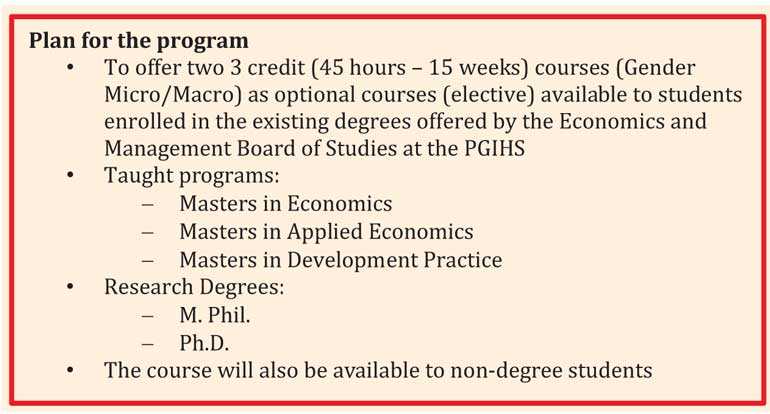
“While Sri Lanka is close to full employment, we have high unemployment amongst younger age groups, especially young women.” Minister Wickramaratne noted that even in the public sector, which has a notably higher proportion of women, women are not adequately represented at the highest levels. The Minister also addressed the issue of ageing population rapidly affecting Sri Lanka’s population.
The keynote speech was delivered by Prof. Maria Floro, professor of Economics at American University in Washington DC, which is assisting the University of Peradeniya with its preparations. Prof. Floro pioneered postgraduate teaching of Gender Analysis in Economics at American University and spoke of their journey, establishing the course there. She also highlighted the pressing need to use a gender lens when studying the discipline of Economics as gender is a social construct and traditional economic models have predominantly been constructed by men.
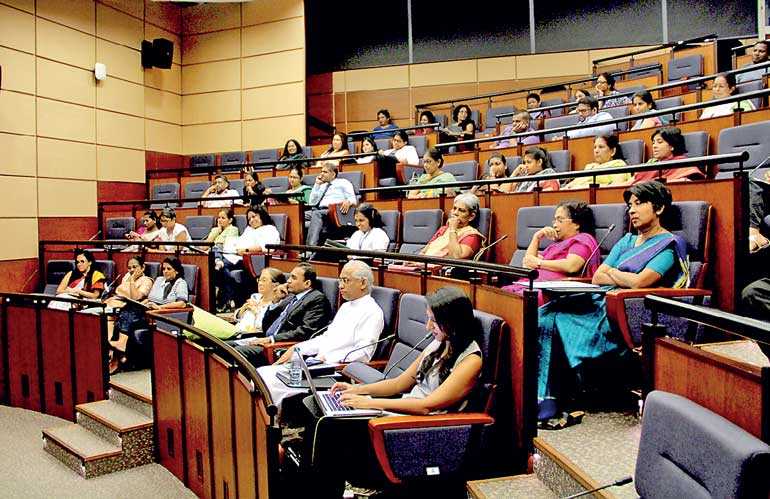
Prof. Floro demonstrated some of the manifestations of these gender power relations, such as unequal access to property and assets, division of labour within the household, social codes that condone violence against women and many more.
Several prominent Sri Lankan economists also presented on existing economic research in gender, and highlighted potential areas for future research that the program could address. The program intends to offer two elective courses (‘Gender Micro’ and ‘Gender Macro’) to post-graduate students enrolled in degrees offered by the Economics and Management Board of Studies at the PGIHS. An alternative version of the courses will also be made available to applicants without a background in Economics.
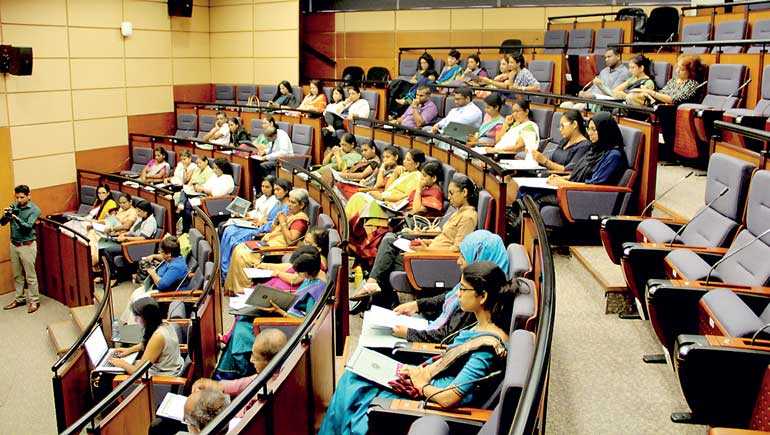
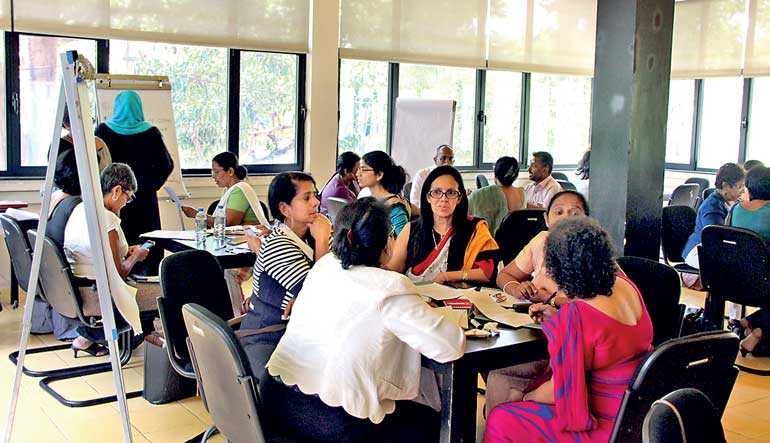
The Gender Micro course will cover topics including economic models of the household, marriage and divorce, domestic violence, fertility and family planning, unpaid work, labour market issues, credit and entrepreneurship and political representation. The Gender Macro course on the other hand, will involve subjects such as gender and trade, gender and international finance, gender and monetary policy and the use of gender responsive budgeting for fiscal policy.
Once they have completed these courses, students will additionally have the opportunity to participate in the Gender and Development practicum. During this period, students will be able to apply their learned experience in the field by immersing themselves with an institution or project beneficiaries. Through the practicum, students will not only be able to apply their analytical skills, but also learn about the operations and challenges of a variety of development organisations.
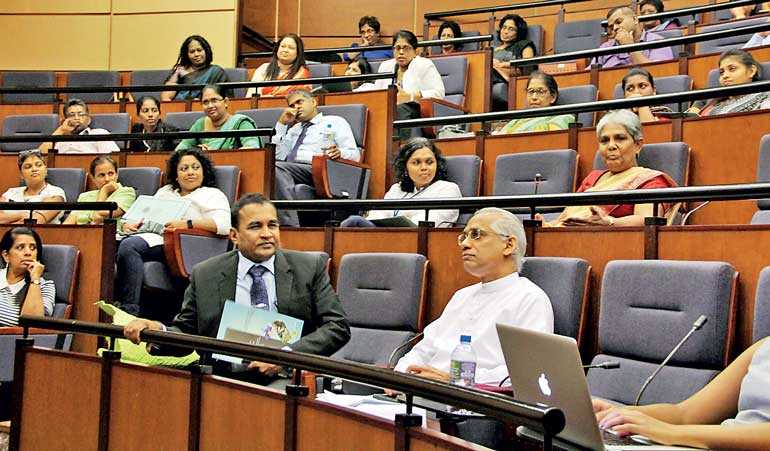
This program arrives at a time of emerging importance in Sri Lanka – the recent implementation of quotas for women in local election was brought about to address the lack of women’s representation in parliament, which is at one of the lowest levels in the region. Female labour force participation continues to remain low as unpaid work and care work falls disproportionately on women to undertake, especially within the context of an ageing population. In addition, gender wage gaps and a lack of women in leadership positions in the workplace also contribute to labour force issues for women. These are just a few of the many diverse issues affecting Sri Lanka today that the postgraduate courses of Gender Analysis in Economics at the University of Peradeniya will aim to address.